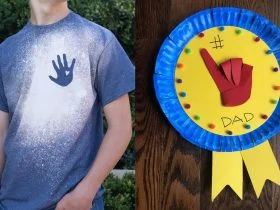Purchasing the ideal gift for children and other loved ones can be difficult, especially when buying gifts for children with autism. Here are a few helpful things to keep in mind while buying special needs resources for people to make your gift-giving easier:
Reader's Roadmap
Concentrate On the Individual’s Interests and Preferences
According to research, individuals with autism can lessen behaviors and improve specific skills by incorporating preferences into their learning and play environments. As a result, parents can leverage their children’s current interests. If a child enjoys dogs, look for dog-themed games, activities, or toys. Water-related activities, like water tables, spray toys, water beads, and grow capsules, maybe a popular. A toy fire truck with a siren, on the other hand, may not be acceptable for a child who is sensitive to loud noises. Ask friends and family members about the person you’re buying a gift for, what that person loves and dislikes in general.
Pay Special Attention to Age-Appropriateness
Always keep the age of the recipient in mind when selecting a present. A teen with autism, for example, may enjoy playing with shape sorters, but given that he is a teen and the toy is designed for toddlers, there are more acceptable toys for him to play with. Look for gifts that are identical to the original toy but have age recommendations appropriate for the person you are buying the gift for.
Pay Special Attention to Developmental Appropriateness
Most toys come with age recommendations, and while these are important, they may not always lead you to the ideal present. When selecting a gift, a good rule of thumb is to think about the age and growth of the person you’re buying it for. When choosing a present, think about what the recipient can do. A sketch pad or buying an adult coloring book, for example, maybe a better gift for the non-verbal teen indicated above who enjoys drawing. If you’re not sure what the person can do, ask friends and family members of the person you’re buying the gift for what abilities they have.
Be Aware of Excesses/Triggers in Your Conduct
Some people with autism engage in activities that endanger themselves or their loved ones. Gifts containing little objects, for example, may represent a choking hazard if a youngster engages in pica (eating non-food items). Gifts with violent content, for example, may not be suitable if a youngster is aggressive toward others, as increased exposure to violence may contribute to future instances of aggressiveness. On the other hand, individuals with sensory-seeking behaviors might benefit from presents that help them refocus their actions in more suitable ways. A swing, for example, could be a terrific approach to address a child’s sensory needs if they rock back and forth. Before selecting a present, inquire with the person’s friends and family to see any behavior excesses/triggers to consider.
Because social deficiencies are a defining feature of autism, aim to buy special needs resources that stimulate social interaction when gift-giving. While practically any activity can be turned into a social engagement, some activities are more socially beneficial than others. Consider the games that can be played in a group instead of purchasing a computer game.







Leave a Reply
View Comments